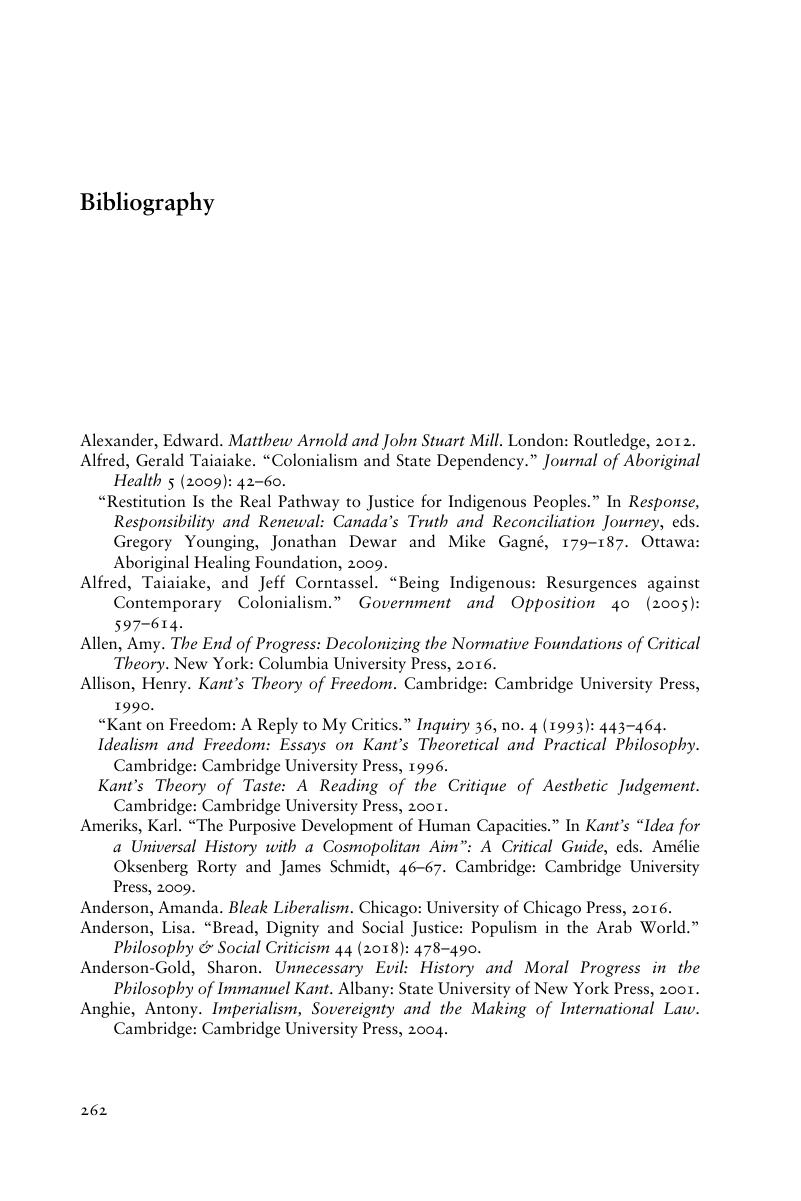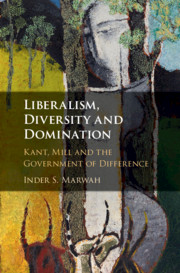Book contents
- Liberalism, Diversity and Domination
- Liberalism, Diversity and Domination
- Copyright page
- Dedication
- Contents
- Acknowledgments
- 1 Introduction
- 2 Unbending Crooked Timber
- 3 Difference, Diversity and Exclusion
- 4 Democratic Character and the Affective Grounds of Politics
- 5 Complicating Barbarism and Civilization
- 6 Millian Liberalism
- 7 Epilogue
- Bibliography
- Index
- References
Bibliography
Published online by Cambridge University Press: 13 May 2019
- Liberalism, Diversity and Domination
- Liberalism, Diversity and Domination
- Copyright page
- Dedication
- Contents
- Acknowledgments
- 1 Introduction
- 2 Unbending Crooked Timber
- 3 Difference, Diversity and Exclusion
- 4 Democratic Character and the Affective Grounds of Politics
- 5 Complicating Barbarism and Civilization
- 6 Millian Liberalism
- 7 Epilogue
- Bibliography
- Index
- References
Summary

- Type
- Chapter
- Information
- Liberalism, Diversity and DominationKant, Mill and the Government of Difference, pp. 262 - 287Publisher: Cambridge University PressPrint publication year: 2019



